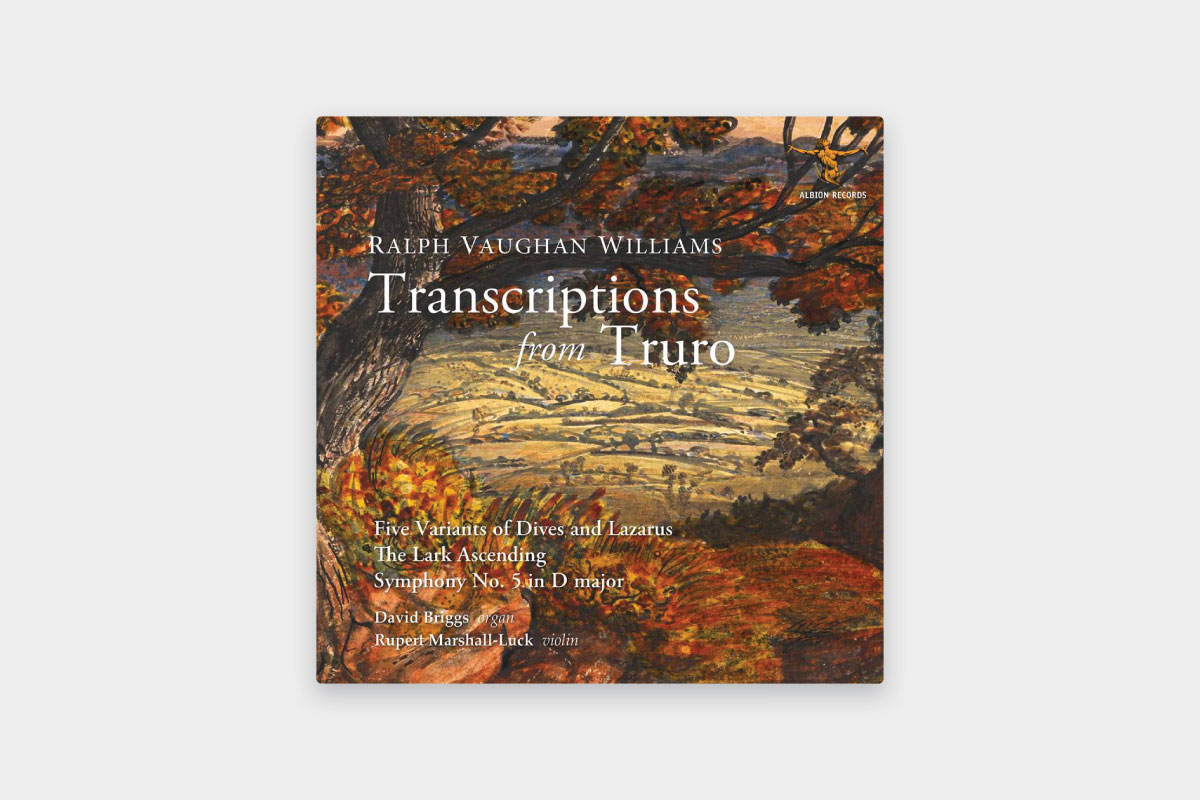In this sesquicentennial year of Ralph Vaughan Williams’ birth, superb recordings such as this should spur listeners to discover afresh the glories of his unique contribution to English music. Organist David Briggs is renowned for his prowess in performance, improvisation and composition, and all of these skills have contributed to his profound empathy and sensitivity in translating three of RVW’s most beloved works from the orchestral realm to that of the organ.

Briggs describes the process as “rather like observing an old great master, but in a new gallery, in a different frame and under different lighting conditions”. Just as Vaughan Williams did not slavishly reproduce the orchestral palette of his teacher Ravel, neither does Briggs attempt to copy verbatim the composer’s original instrumental colours.
In producing transcriptions that are idiomatic to the organ, Briggs could not hope to find a better instrument than the Father Willis organ of Truro cathedral. From its shimmering strings to its solid foundation stops and rounded, muscular reeds, this organ encompasses an enviable range of light and shade, as well as being undeniably British.
The blazing climax of










Comments
Log in to join the conversation.